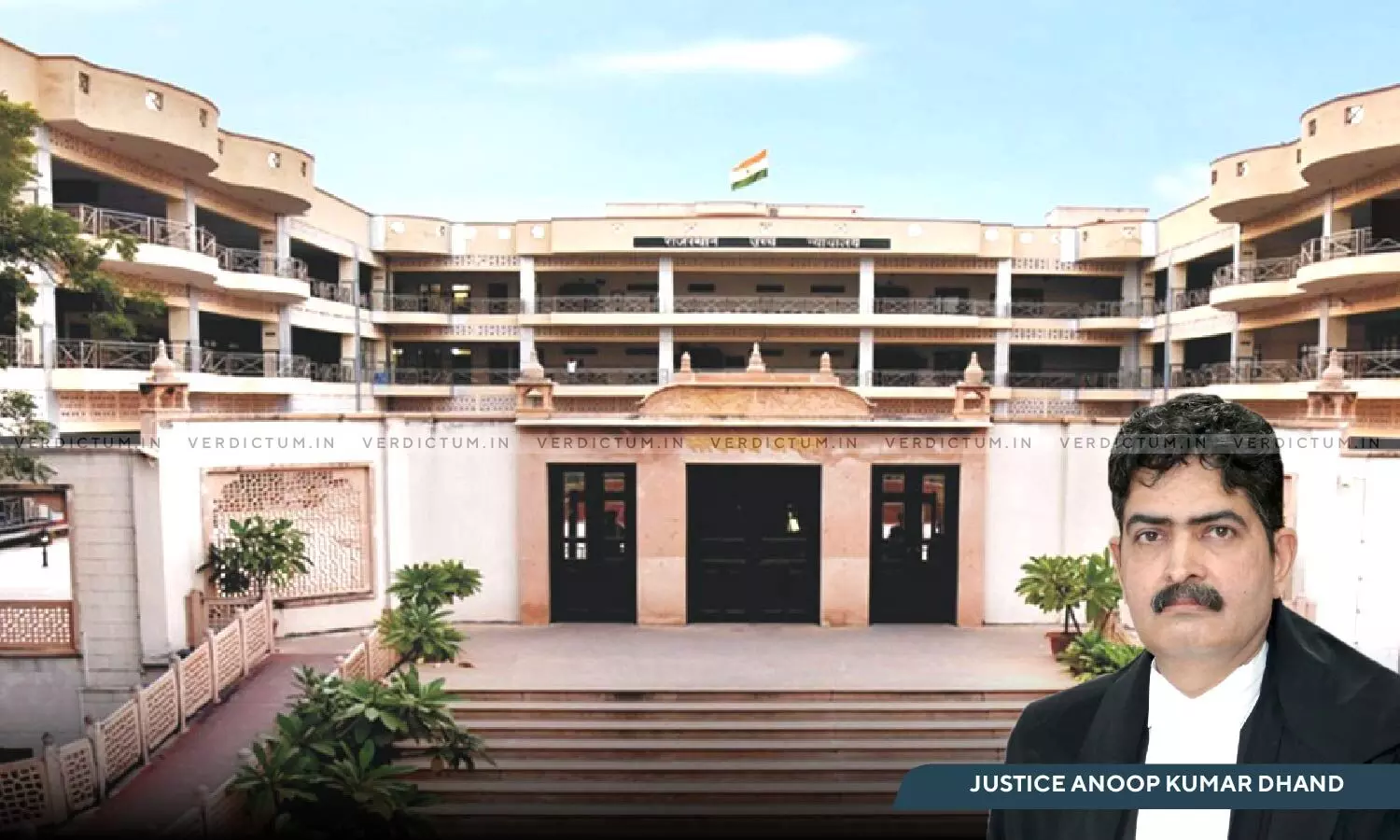
Merely Because Victim Has Not Stated Anything About Actual Assault Doesn’t Mean That It Has Not Taken Place: Rajasthan HC Upholds Rape Conviction
 |
|The Rajasthan High Court upheld conviction under Section 376 of the IPC observing that merely because the victim has not stated anything about the actual assault does not lead to a conclusion that it has not taken place.
The Court dismissed an appeal filed by the accused challenging the decision of the trial court which convicted him under Section 376 of the IPC read with Section 511 of the IPC for an “attempt to commit rape” and sentenced him to five years of rigorous imprisonment. The Court cancelled the accused’s bail after observing that he had “done all that was required in accomplishing his evil desire of committing rape upon the victim.”
A Single Bench of Justice Anoop Kumar Dhand observed, “There is overwhelming evidence on the record to prove the appellant’s deliberate overt-steps to call the minor-victim in his room and lay her on the bed and undress her and himself and push his genitals into her genitals and discharged semen. As the child cried due to pain, the appellant could not succeed in his penultimate act and there was a sheer providential escape from actual penetration. Had the appellant succeeded in penetration, even partially, his act would have fallen within the definition of rape as defined under Section 375 IPC.”
Advocate Pranav Pareek appeared for the petitioner, while AGA Niloufer Akbar represented the respondent.
The victim’s father lodged an FIR alleging that his five-year-old daughter had been approached by the accused, who then committed acts amounting to an attempt to rape. Following the investigation, a charge-sheet was submitted for the offences under Sections 376, 511, and 354 IPC, with charges framed against the accused in the trial court.
The prosecution’s case relied primarily on the testimony of the minor victim, supported by forensic analysis. During the trial, the victim recounted that the accused called her to his room, removed her inner wear, and pressed his genitals on hers, causing her pain and wetting her underwear (with semen).
The victim’s mother testified that her daughter came to her crying and recounted the incident. The forensic evidence, as indicated in the FSL report, confirmed human semen on both the victim’s and accused’s inner-wear. The trial court, after examining the evidence, convicted the accused.
The High Court observed, “The statements of the victim girl in the present case has to be understood, analyzed and appreciated in the backdrop of the other circumstances which are to be corroborated by the scientific evidence of FSL. Thus, merely because the victim has not stated anything about the actual assault does not lead to a conclusion that it has not taken place. Her statement, having regard to her tender age and vulnerabilities, has to be appreciated in the light of FSL report.”
“The evidence available on the record indicates that the appellant has fiddled with the private parts of the victim by pressing his genitals into her genitals and discharged semen when she cried due to pain. There is a cogent evidence available on the record as per FSL report that semen was found on certain parts of the body and clothes of the victim and the appellant,” the Bench remarked.
The Court stated that the evidence established that the accused went “beyond the stage of preparation” and constituted “deliberate overt-steps” towards committing rape. He pointed out the settled distinction between “preparation” and “attempt,” referencing the Supreme Court’s decision in Koppula Venkat Rao vs. State of A.P. (2004), wherein it was held, “An attempt may be described to be an act done in part-execution of a criminal design, amounting to more than mere preparation, but falling short of actual consummation, and, possessing, except for failure to consummate, all the elements of the substantive crime. In other words, an attempt consists in it the intent to commit a crime, falling short of, its actual commission or consummation/completion.”
Consequently, the Court held, “For what has been discussed hereinabove, this Court does not find any ground to interfere with the well reasoned and well crafted judgment of the trial Court and thus, for the reasons stated above, this Court does not find any merit in the instant appeal. The impugned judgment of conviction and sentence passed by the trial Court is upheld and the appeal is dismissed accordingly.”
Accordingly, the High Court dismissed the appeal.
Cause Title: Shiv Prakash v. The State of Rajasthan
Appearance:
Petitioner: Advocates Pranav Pareek and Aman Lodha
Respondent: PP Manvendra Singh